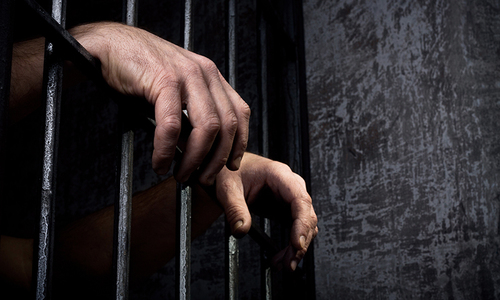LAHORE: The Lahore High Court has set aside death penalty handed down to a man in a murder case on the evidence of deaf-mute eyewitnesses and also set basic standards for the trial courts to examine such witnesses.
The trial court of Sargodha had sentenced Anjum Latif to death in a 2012 murder case.
A two-judge bench comprising Justice Sardar Ahmad Naeem and Justice Sardar Muhammad Sarfraz Dogar allowed the convict’s appeal against the sentence.
The bench in its verdict observes that two of the eyewitnesses presented by the prosecution were deaf-mute and their statements were recorded with the help of an interpreter, who was an instructor at a school for such persons.
The bench observes that there is no statutory provision which specifically deals with the opportunity of recording evidence of a deaf-mute witness, however, Article 3 of the Qanun-i-Shahadat, 1984 contemplates that all persons are competent to testify, unless they are prevented from understanding the questions put to them or from giving rational answers to those questions.
The bench notes that when a deaf-mute person is examined in the court, it has to exercise due caution and take care to ascertain before he/she is examined that he/she possesses the requisite amount of intelligence and that he/she understands the nature of his/her oath. It adds that on being satisfied by this, the witness may be administered oath by appropriate means and that also with the assistance of an interpreter.
The bench observes that the record of the instant case is silent regarding details of the signs made by the deaf-mute witnesses, as well as about the interpretation of their signs by the interpreter.
The summoning of the school’s headmistress itself suggested that the interpreter was not an expert and fully capable to convey the signs of the injured witnesses. The bench notes that the interpreter himself was a witness in the case.
It says the record suggested that the instructor had been a teacher in the school of the witnesses, meaning thereby that the witnesses had attended the school of deaf-mute persons, but the record is silent if they were able to read and write, otherwise, it would have been expedient to obtain their written statements during the trial.
The bench rules that the trial court failed to determine if the injured eyewitnesses were literate or otherwise. “No doubt, language of deaf and dumb persons requires special knowledge or skill which may be acquired through a specialist in the field,” it adds.
Setting standards for the trial courts to examine a deaf-mute witness, the bench states that the trial courts should determine whether the witness understands the nature of oath, or such witness either through writing or signs can communicate what he has to speak.
When such a witness is unable to write, then he/she can make a sign showing what he wants to say, and if it is by signs, those signs must be recorded by the trial court and not only the interpretations of those signs.
The bench says it is not safe for a trial court to embark upon the examination of a deaf-mute person on his own without help of an expert or a person familiar with his mode of conveying ideas to others in daily life.
It states that the interpreter should not be an interested person, who had participated in the investigation and who was a witness in the same trial.
“Interpreter should be a person of the same surrounding, but should not have any interest in the case and he should be administered an oath,” it adds.
Published in Dawn, April 24th, 2022







































